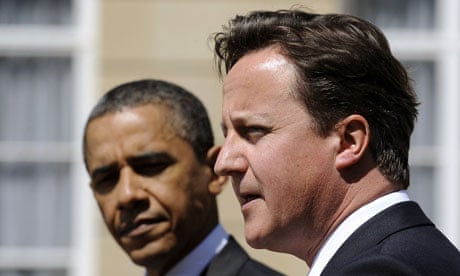When my partner and I heard about the gay marriage bill our first thought was that the freight train of civil rights had at last hit the Tory party. It might be more accurate to say that the glacier of civil rights has crept over the Tory party. But look at the bright side: at least one glacier isn't receding.
In fact, to switch the metaphor again, what this feels like is the end of a road – a long road, that we started on in this country in the 1960s, with the decriminalisation of gay sex.
Legislation isn't everything of course – homophobia and prejudice are still alive and kicking, as we saw at some points during the otherwise fairly good-natured debate in the House of Commons. But legislation is crucial, as civil rights campaigners the world over have found. Things really gathered pace after 1997, when the Labour government introduced a raft of reforms. The last one was civil partnership. But that wasn't enough for everyone – including us. We wanted to wait, until full, equal marriage, before tying the knot.
Our delight is also tempered by the fact that we haven't forgotten that the ugly era of section 28 was a Tory creation. Perhaps the gay marriage bill goes some way to balancing things out. The legacy of section 28 is that many gay people regard the Tory party, even in its modernising mode, with deep suspicion. If David Cameron manages to overturn that legacy, it will be an impressive feat. However, this child of 1980s Britain will be sticking with his suspicion. The bigotry of section 28 is just still too clear in my mind.
For now, though, Britain can hold its head up high when it comes to gay rights. Elsewhere, there are good signs too. In his inaugural address, Obama was right to fit the gay political struggle into the wider history of the struggle for civil rights. Obama suggested that gay love is equal to any other kind of love, in the eyes of God and of the law. Either we are all human together, and can move through civil society with the same freedoms, or some of us end up being subhuman. The latter was never going to be possible for a self-respecting society to live with. Obama talked about Seneca Falls, Selma, Stonewall in the same breath: it is a powerful and moving thing to see the struggle for gay rights in this list.
There is real inspiration here – and a historical lesson for those who still stand against gay marriage. It was Rosa Parks who challenged the rule in the American south that black people had to sit at the back of the bus, as second-rate citizens. It's nice to know, after yesterday's vote, that we are allowed to come up to the front of the church and stand by the altar.
There remains the problem of the opt-out: individual churches can "opt out" of gay marriage on grounds of religious "conscience". Does this mean that if we get married, we are going to have to shop our equal love around to various churches until we find a priest who is willing to allow it to be equal? That isn't really equal, is it?
Although there are many within the Church of England who are open-minded about gay marriage, it has officially been fighting gay marriage every step of the way. This contest between religious and civil rights will be a serious test of governmental conviction on both sides of the Atlantic. But we feel more confident now that both Cameron and Obama are on our side, two of the biggest boys in the playground. Go get em lads!
